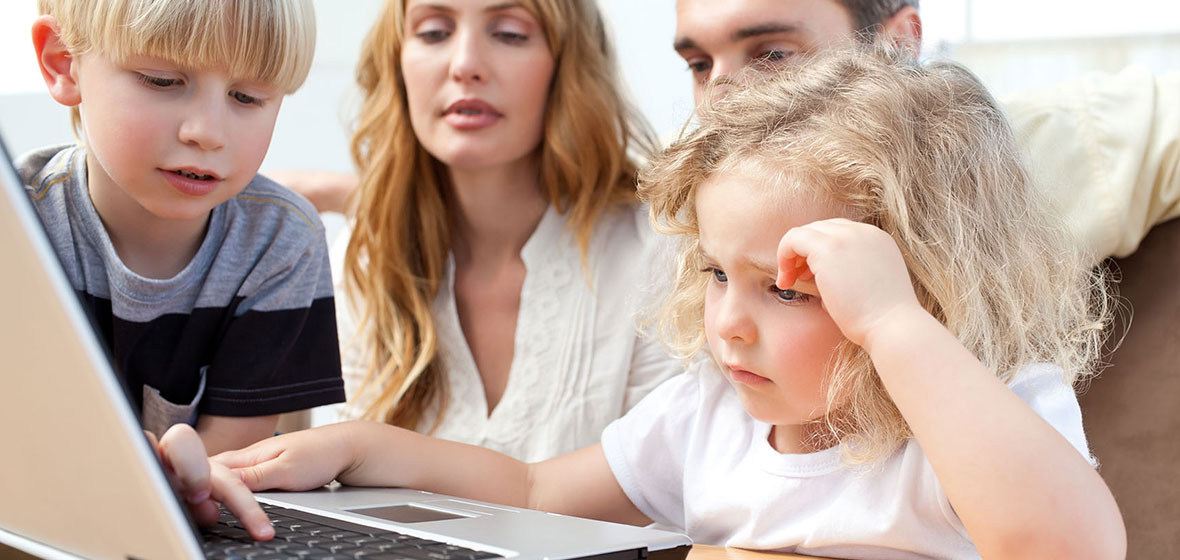What is Internet Safety?
In an ever-growing digital world, children are exposed to the internet every day. Whether they have iPads for fun, laptops for homework, or mobile phones to keep them safe, it can take as little as a few seconds before they are on the internet and being shown a whole new world.
Whilst we can all agree that the internet has its benefits, it also comes with the added risk of your child stumbling across content that may be inappropriate for their age, or trying to replicate something they have seen online. Speaking to them from a young age about internet safety and online threats is important. Parental supervision is also essential in keeping your child on the right track where online browsing is concerned, and with our help you’ll be able to give your child the best experience when they find themselves venturing online.
Key Tips for Keeping Children Safe Online
1. Do not let your child browse the internet alone
Make it a rule that the child must only use their electronic devices in the living room or in the presence of an adult. Put together a device drawer and make sure that the items stay in there until given permission. This way, adults can ensure that their child is not viewing unsuitable content and can also manage the child’s online activity.
2. Teach children about protecting their privacy
Teach your kids never to share personal information such as addresses, phone numbers, names, parent’s work details, etc. without the permission of a parent. You should also discuss the importance of not sharing their passwords and set up a strong password with them. Passwords with at least 8 characters and one number, one special character and one upper-case and lower-case letter are harder to crack.
3. Never meet online friends
Teach your children that the internet gives people the anonymity and that their online friends may not be who they say they are. Teach them that they should never meet online friends and monitor their activity and interactions online. If your child starts constantly talking about someone who they are speaking to online, then it’s worth investigating further.
4. Install Parental Controls
Many devices nowadays have software you can install that allows you to block certain websites and control what your child views. Many of them have various user profiles, which means you can set up a user for your child that has certain restrictions. Make sure other profiles have passwords so that your child cannot access them.
5. Set Time Limits
It is important to set boundaries when letting your child use electronic devices. Whether it be for educational purposes or for entertainment, set time limits on their online activity, as this will help them create a better relationship with technology in general. Discuss this with your child and agree on a set time limit per day.
6. Use Airplane Mode
If your child is using a device purely for entertainment purposes, whether that be watching something or playing a game, set the device to airplane mode. We have all heard the stories about children unknowingly racking up huge bills thanks to in-game purchases. By putting the device into airplane mode you can minimize the risk of unapproved purchases.
7. Browse Safely
Set sites like Swiggle and Kids Search as the default browser on your child’s device. These are child-friendly search engines that can put your mind at ease when letting your child browse the internet. Safe search settings can also be activated on Google and other search engines, and even Youtube has a kid-friendly site.
8. Avoid Pop-ups and E-Newsletters
Pop-ups and ads can often result in viruses being downloaded onto your device without your knowledge. They could also be an online scam to gather the user’s personal details. Newsletters often require you to fill out a form with a variety of information – this information is unsafe for a child to give out online. Teach your children to avoid clicking on suspicious email attachments, pop-ups, ads and newsletters.
How to talk to your child about online safety
Having a discussion with your child about online safety should be something that is done at an early age. If you have older children you should also bring them back into the conversation to discuss any concerns they have. This will refresh their memory on things they may have learnt at a younger age and also let them share important aspects of online safety with their younger siblings.
The conversation should be open, fun and educational. Getting everyone together to jot things down on a large piece of paper that can be displayed near the family computer will keep online safety in the forefront of their mind when browsing. We hope that these tips can help keep you and your little ones safe on the internet. For further advice, check out the NSPCC’s section on keeping children safe online.













